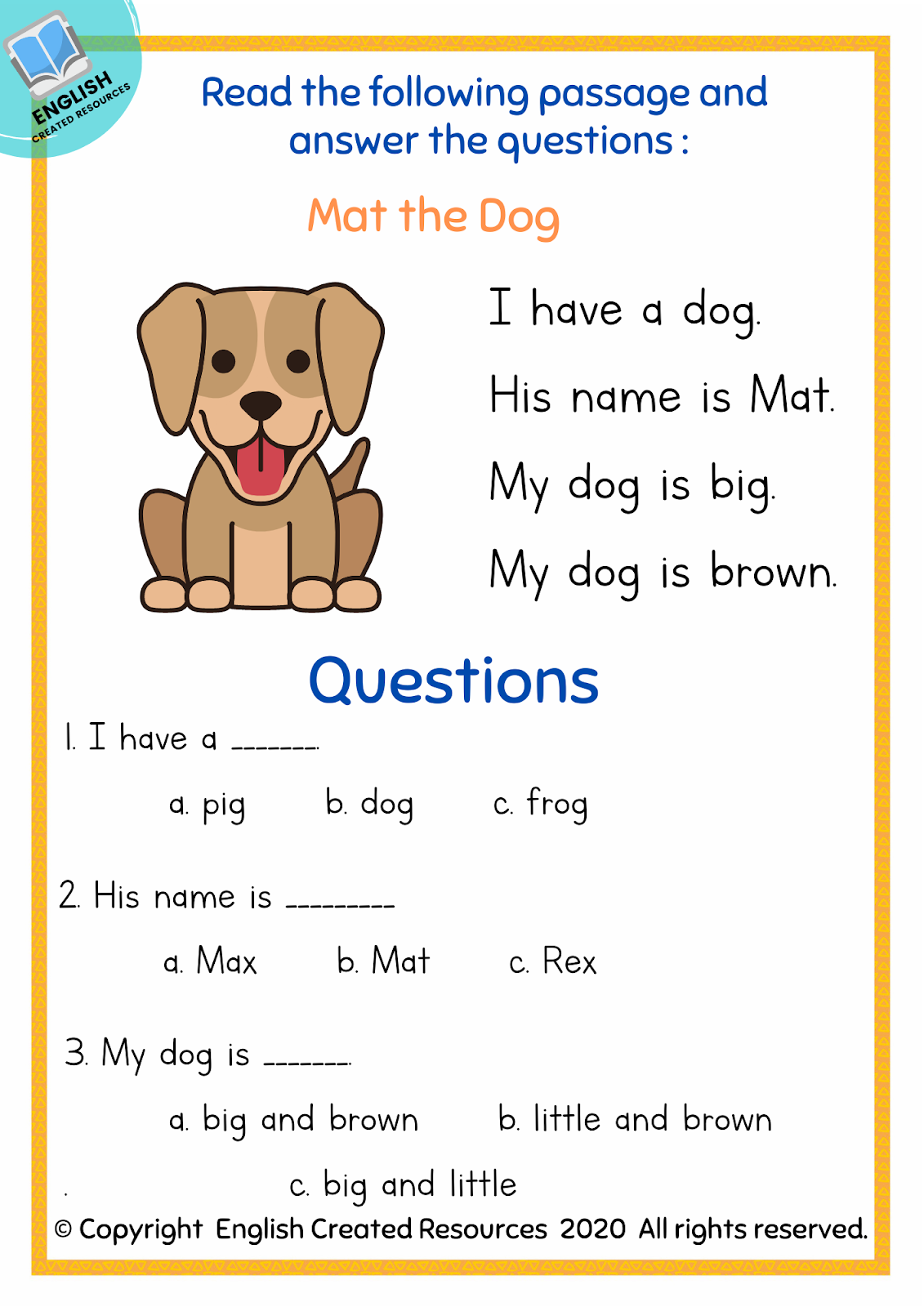Unlocking Little Minds: Short Reading Comprehension for Kindergarten
Remember those magical bedtime stories, the ones that transported you to faraway lands and introduced you to talking animals? Those early experiences with books planted the seeds for a lifelong love of reading. Now, imagine sharing that same gift with your kindergartner, opening up a world of wonder and knowledge through short, engaging stories.
In a world increasingly dominated by screens, it's easy to let those precious moments with books slip away. But fostering a love for reading at a young age is crucial. That's where short reading comprehension activities come in. They're like bite-sized adventures for young minds, making the journey into literacy fun, engaging, and completely approachable.
Think of it like this: you wouldn't expect a child learning to ride a bike to hop on a two-wheeler without training wheels, right? Reading comprehension is similar. It's a skill that needs to be nurtured and developed gradually. Short stories, poems, and even simple instructions become stepping stones, building confidence and setting the stage for a lifetime of learning.
But what exactly does short reading comprehension for kindergarten entail? It's all about helping our little learners understand, remember, and engage with what they read, even if it's just a few sentences at a time. It's about asking questions, sparking curiosity, and making those connections between the words on the page and the world around them.
And the best part? It doesn't have to feel like work! From colorful picture books to interactive games, there are countless ways to make reading comprehension an enjoyable experience for both you and your child. Ready to embark on this exciting adventure together?
Let's start by exploring some fun and easy strategies to weave short reading comprehension activities into your daily routine. One simple but powerful technique is called "retelling." After reading a short story together, encourage your child to recount the tale in their own words. You can prompt them with questions like, "Who were the characters in the story?" or "What happened at the beginning, middle, and end?"
Another engaging activity is to play "detective" with the story. Ask your child to find specific details within the text, like "What color was the cat?" or "Can you point to the picture where the bird is singing?" This not only reinforces comprehension but also hones their observational skills and attention to detail.
Making predictions is another fantastic way to boost engagement. Before turning the page, pause and ask your little one, "What do you think will happen next?" This encourages them to think critically, draw inferences from the text, and anticipate the storyline.
Of course, the world of short reading comprehension activities extends far beyond the pages of a book. Don't underestimate the power of everyday moments! Reading street signs together, following simple recipes in the kitchen, or even deciphering instructions for a new toy can all become opportunities for learning and bonding.
The key is to make it fun, lighthearted, and an integral part of your daily interactions. When you approach reading comprehension with enthusiasm and creativity, you're not just teaching your child to read; you're instilling in them a lifelong love for stories, a thirst for knowledge, and the confidence to explore the world with open minds and open hearts.
Education in the philippines a look at deped and its impact
The ultimate guide to short layered haircuts for women over 60
Decoding your trailer the power of vin number check apps














